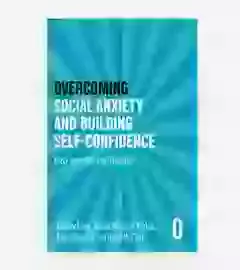The role of thinking in Social Anxiety
Social anxiety is rooted in thoughts. If you're socially anxious you think that others are judging you badly. To make matters worse, you think that the things that you suppose other people are thinking are true. ('They don't want me with them.' 'They think I'm weird.' 'They don't like me.') Underneath you may believe that you are different or odd and don't quite belong. Thinking can trigger bouts of anxiety, and it can keep the anxiety going once it's started, so understanding this part of the problem is essential in working out how to overcome it.
In order to make sense of the relationship between thoughts and feelings, it helps to distinguish different levels of thinking.
Attention
Social anxiety affects what you notice - what you pay attention to. When you're socially anxious you become painfully aware of yourself and of your perceived shortcomings, and once you start thinking about them they tend to dominate, so there's less attention left over for anything else. So, for example, you might not notice what people are actually saying. You only notice and remember things that fit your fears.
Automatic thoughts
When you're feeling anxious your thoughts tend to have a negative bias, and you interpret things in terms of how much of a threat they might be to you as if the world were full of dangerous risks. Negative automatic thoughts, such as 'they think I'm stupid', 'everyone is looking at me', or 'I'm always doing something wrong' can dominate your thoughts.
Underlying beliefs and assumptions
These are your patterns of thinking and fundamental attitudes. We all approach the world, and deal with our experiences, using our beliefs and assumptions to guide us. Your beliefs about yourself and other people have a major impact on the ways in which you interact with others. Your assumptions are like rules for living, and they are closely related to the strategies that you may use to cope with your social anxiety. For example, if you assume that it's your fault when a conversation goes badly then you'll try to make sure that none of the conversations you're involved in are bad ones - and you might do this by avoiding as many conversations as possible.
Images
We all think in images, although the extent to which we do so varies from person to person. Images have an extraordinarily immediate quality and often provoke strong feelings. Often they're based on specific memories and may come to mind in situations that have some of the same characteristics, such as someone looking like the person who provoked those feelings in the first place.
When you have an image involving yourself, you may be looking at the situation as if you could see yourself from someone else's point of view, or as if you were looking at the situation through your own eyes. Seeing things from the inside, looking outwards focuses attention on other people, and enables you to gather accurate information about them. But socially anxious people more often have images of the 'outside in' kind than other people do. In their images they often see themselves as they assume others would see them. So their images appear to confirm their underlying beliefs and assumptions, even though in reality the images are just reflecting those beliefs.

















